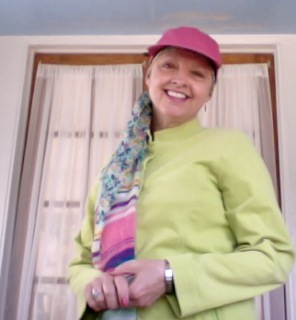Leaving a legacy, not a mess
Author of book, “Good to Go: A Guide to Preplanning for the End of Life”, shares some advice about the importance of pre-planning.
 Why did I quit a successful radio career to write a book about pre-planning for death? I noticed how survivor relationships shifted (and not always in a nice way) after my elders – parents, childless aunt, and a longtime friend – died. One had no plan; one had a bad plan; one had an old plan; and one had a good plan. In each case, the outcome was according to the plan.
Why did I quit a successful radio career to write a book about pre-planning for death? I noticed how survivor relationships shifted (and not always in a nice way) after my elders – parents, childless aunt, and a longtime friend – died. One had no plan; one had a bad plan; one had an old plan; and one had a good plan. In each case, the outcome was according to the plan.
If you have no plan, three things are likely to happen when you die:
1) Hasty, expensive decisions made in grief about your burial, funeral, etc.
2) People fight over your stuff.
3) Estrangement occurs among your survivors.
If you have a bad plan, it can be much like having no plan; producing struggle for your loved ones as they try to figure out and carry out your lame plan.
If you have an old plan, you risk shutting out those who have become important and helpful to you later in life. Also, when people named in the Will die before you, it can take a long time to sort through the legal process.
Even if you have a good plan, things might not work out the way you intended. You’ll have to count on your survivors or hired professionals to carry out your plan, which is why it’s imperative to enlist only trustworthy people to honour your wishes.
Whatever kind of plan you devise for when – not if – you die, it’s no good unless you tell someone about it. Write it down and show a trusted loved one the location of your plan. A man told me that his father kept a folder labelled “The Death Book” and would write notes and slip them inside the folder from time to time. When family members asked what he was doing, Dad would answer, “None of your business right now. When I’m gone, you can look in the folder.”
When his father died, the son opened the folder and was delighted to see not only detailed plans for a memorial service and a list of bequeathed items, but doodles and personal letters as well. The folder helped make the son’s job as executor much easier than it would have been without it. I labelled my folder “Good to Go” and the papers there include who I would like with me in the event I’m languishing at the end, pictures of my jewellery and to whom it’s bequeathed, songs I would like shared at my memorial (“Straighten Up and Fly Right” by Nat King Cole for my sons because we sang it together when they were little boys and, hopefully, they’ll enjoy hearing it upon my exit).
It’s a precious gift to your loved ones if you pre-plan for the big bye-bye. You could even write your own eulogy and obituary. After I gave a talk suggesting this, a woman told me that she would like to write her own obituary but was hesitant because it might mean she would die, having given so much power to that thought, I said, “Then, write your obituary and date it decades into the future. That way, you’ll be giving power to thoughts of a long life!”
A funeral director shared with me a story about a woman who pre-planned and pre-paid for her funeral arrangements so that when the day of her service and burial came, it happened exactly how the woman had wanted and her adult children were able to celebrate their mother’s life without wondering what she would have wanted in death.
It’s especially important to have meetings with loved ones for talk about death when your family is not in crisis. This way, emotions will be less likely to detract from the mission. It’s best to include only family members in these meetings, with all present. Input from in-laws can come to the table via the affiliated family member. When a family is in grief, a well-meaning son- or daughter-in-law might take over, trying to help. Later, family members might consider this so-called “help” to be an intrusion.
Through my experiences, I learned the hard way that the better you plan for the end-of-life; the more likely your survivors will stay together as a family after you’re gone.
Then, I was diagnosed.
“Jo, you did it backwards,” a girlfriend joked. “You wrote ‘Good to Go’ and after that, you got breast cancer.”
“Tell me about it,” I said. “But, at least I don’t have to worry about having a plan, just in case, because my plan is in place. It’s nice to concentrate on treatment and healing without having to consider what I want in the event of my demise.”
After chemotherapy, mastectomy and radiation, my prognosis is good. With reconstruction in progress, I’m slowly working my way back to normalcy. The last thing I want to think about is death, especially my own. I’m good to go.
Jo Myers, 55, is a radio personality turned writer who lives in Colorado, US. She is married with two grown sons. Details about Myers, her book “Good to Go – A Guide to Preplanning for the End of Life”, her blog, and her podcasts can be found at www.JoMyers.com.

0 Comments